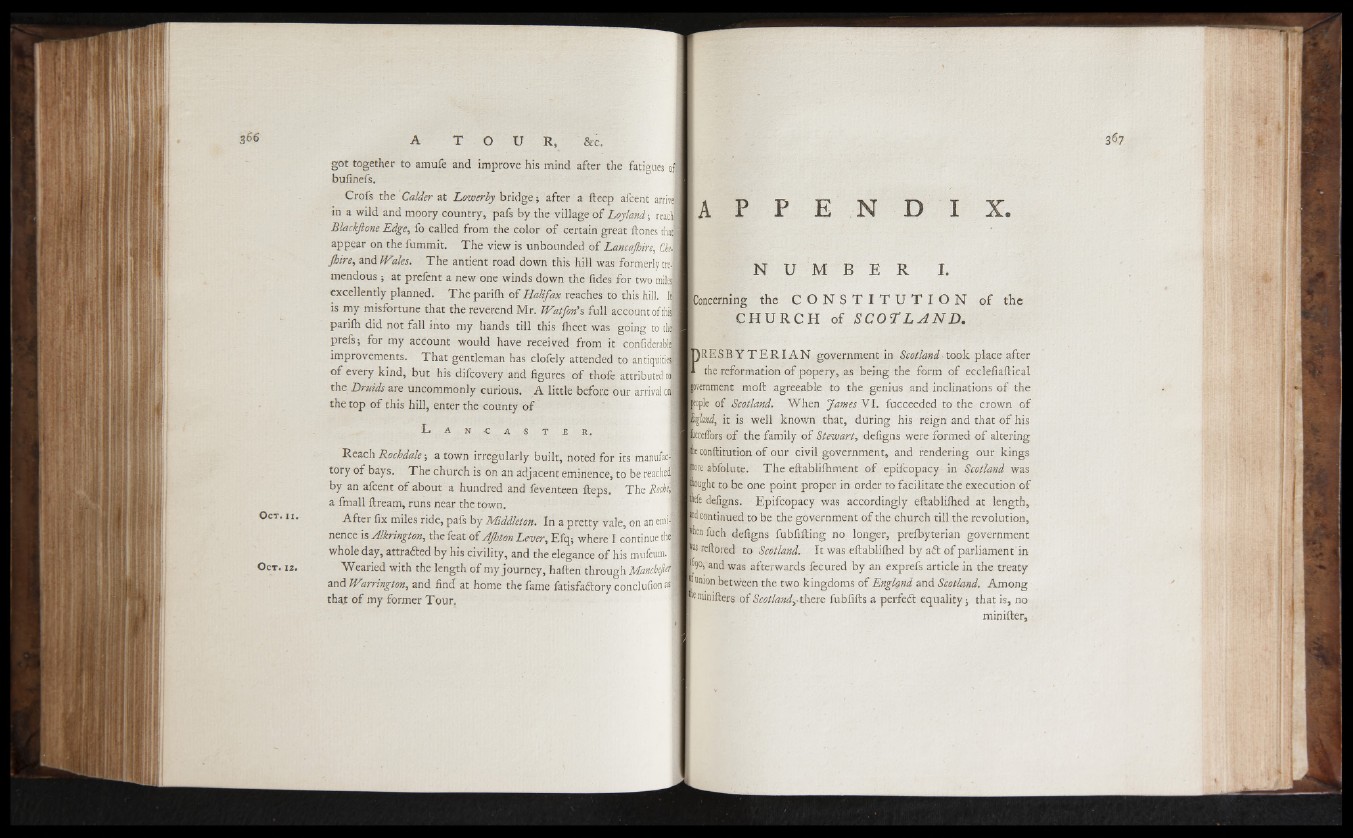
O c t . i i .
O c t . 12.
got together to amufe and improve his mind after the fatigues ofj
bulinefs.
Crofs the Colder at Lowerby bridge; after a ileep afcent arrive!
in a wild and moory country, pafs by. the village of Loyland-, reach]
Blackfione Edge, fo called from the color of certain great ftones thai
appear on the fummit. The view is unbounded of Lancajhire, Chit
Jhire, and IViles. The antient road down this hill was formerly trel
mendous ; at prefent a new one winds down the fides for two mile*
excellently planned. The parilh of Halifax reaches to this hill, ii
is my misfortune that the reverend Mr. Wat fin'a full account of thil
parilh did not fall into my hands till this iheet was going to thi
prefs; for my account would have received from it confiderablf
improvements. That gentleman has clofely attended to antiquitiel
of every kind, but his difcovery and figures of thofe attributed tl
the Druids are uncommonly curious. A little before our arrival o|
the top of this hill, enter the county of
L a. n -c a -s t .e r .
Reach Rochdale; a town irregularly built, noted for its manufacl
tory of bays. The church is on an adjacent eminence, to be reaches
by an afcent of about a hundred and feventeen fteps. The Rocbti
a fmall ftream, runs near the town.
After fix miles ride, pals by Middleton. In a pretty vale, on an emij
nence is Alkrington, the feat of Afhton Lever, Eiq; where I continue thfl
whole day, attradbed by his civility, and the elegance o f his mufeuin.I
Wearied with the length of my journey, haften through ManchM
and Warrington, and find at home the fame fatisfadlory conclulion aa
that of my former Tour.
A P P E N D I X .
N U M B E R I .
Concerning the C O N S T I T U T I O N of the
C H U R C H of S C O T L A N D .
PR E S B Y T E R IA N government in Scotland took place after
the reformation of popery, as being the form of ecclefiaftical
bvernment moil .agreeable to the genius and inclinations of the
fcople of Scotland. When James VI. fucceeded to the crown of
foW, it is well known that, during his reign and that o f his
pceffors of the family of Stewart, defigns were formed of altering
fe conftitution of our civil government, and rendering our kings
(ore abfolute. The eftabliihment of epifcopacy in Scotland was
fought to be one point proper in order to facilitate the execution of
Me defigns. Epifcopacy was accordingly eftablilhed at length,
^continued to be the government of the church till the revolution,
pen fuch defigns fubfiiting no longer, preibyterian government
p teftored to Scotland. It was eftablilhed by ail of parliament in
WVand was afterwards fecured by an exprefs article in the treaty
[union between the two kingdoms of England and Scotland. Among
Fminifters of Scotland^ there fubfiils a perfedt equality; that is, no
minifter,